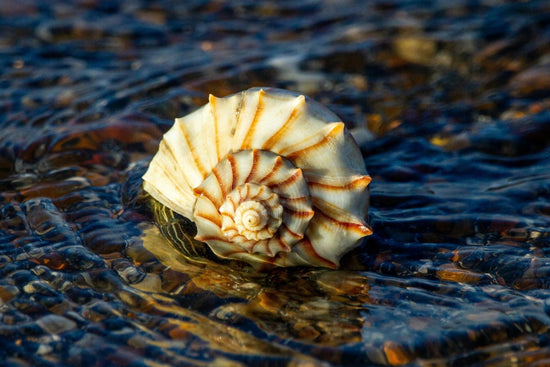Intimate health is still a taboo subject, especially when it comes to the women's bodies. The truth is, we as a society are still really uncomfortable talking about vaginas. The shame and silence around "feminine" anatomy is so deep that most people assigned female at birth don’t have a great understanding of their own bodies.
Editor's Note: Sea Witch Botanicals acknowledges that not all women have vaginas, and not all people with vaginas are women.
A 2014 study by the Eve Appeal found that 65% of young women were uncomfortable using the words vagina or vulva, and half of them couldn’t properly label a vagina on a medical diagram. That means that half of us don’t even know what’s normal for our own bodies!
In an article for the Sydney Morning Herald, journalist Cat Rodie writes that “as long as there is taboo around female genitalia, there will be disturbing consequences for women”. These consequences sometimes result in repression and violence, but all this vaginal phobia also means many people aren’t getting the care they need when it comes to their reproductive health.
Sadly, as many of us don’t even feel comfortable talking to our own doctors about our vaginas, we’re left to shamefully peruse the “feminine hygiene” section at the grocery store. Still, even this is letting us down. Most of these products are chock full of harmful ingredients that are not doing us any justice!
Vagina vs. vulva - a quick anatomy refresh

Source: Planned Parenthood
Since there’s so much confusion, let’s get things straight from the get-go. When most people use the word vagina, they’re actually referring to the vulva. A vagina and a vulva are not the same thing. The vagina is the muscular canal inside the body. It connects the vulva to the cervix and uterus.
The term vulva refers to the outside anatomy of the genital area. This includes the labia majora, labia minora, clitoris, vaginal opening, and the opening of the urethra.
What’s wrong with conventional "feminine" washes and other personal care products?
Most soaps, "feminine washes", and other personal care products on the market are petroleum-based and contain synthetic fragrances. Even if you’re lucky enough to not feel the negative impacts of these ingredients in your daily skincare routine, you may find them a bit more insidious in your genital care products.
The flesh of the vulva is a mucous membrane with a very discriminating ecosystem. Disruption of this balance can cause many issues such as yeast infections, urinary tract infections, foul odor, inflammation, itchiness, and burning. These immediate symptoms aside, fragrance oils in particular have been found to contain known endocrine disruptors. These chemicals interfere with the body’s hormones and are known to cause developmental, reproductive, and neurological issues.
One of the main hormone-disrupting ingredients commonly found in personal hygiene products are phthalates, which can have a significant effect on reproductive systems. Not only can they contribute to gynecological disorders and infertility, but these plasticizers can be passed down through generations.
The pH of a vagina is one of the biggest health indicators. Depending on a person’s age, a healthy vaginal pH will range from 3.8 - 4.5, which is quite acidic. This acidity is what kills off bad bacteria and fungal infections. However, it’s a delicate balance and many factors can throw off the natural pH, causing health issues.
A word on douching
Douching solutions often contain petroleum-based ingredients and those same icky endocrine disruptors, phthalates. Most doctors recommend against douching, as it can alter the vaginal flora and necessary acidity of a healthy vagina.
Vaginas naturally have both good and bad bacteria, and douching can lead to an overgrowth of harmful bacteria. This overgrowth can cause yeast infections and bacterial vaginosis. Even worse, if you have an existing infection, douching can actually push the bacteria further up into the uterus and ovaries. That can lead to pelvic inflammatory disease, a very serious condition.
The American College of Obstetricians and Gynecologists warns that there are other complications related to douching, including increased susceptibility to STIs and pregnancy complications.
In short, please do yourself a favor and don’t douche! (If your vagina is surgically constructed, follow your surgeon's instructions regarding douching.)
Promoting a Healthy Vagina

A healthy vagina is critical to your physical, mental, and emotional health. We all deserve to feel good, and we all deserve a safe place to talk about our bodies and have access to good care.
If you’re looking for what to do instead of douching or using these toxic hygiene products, try Vasheen! It’s an all-natural and plant-based bar soap that we made just for your gentle bits. For more information about Vasheen, check out our article about what it is, why we created it, and how to use it.





